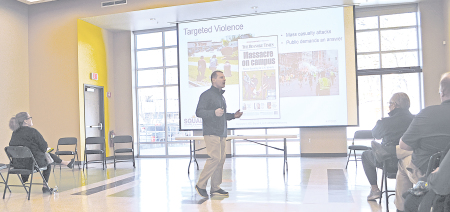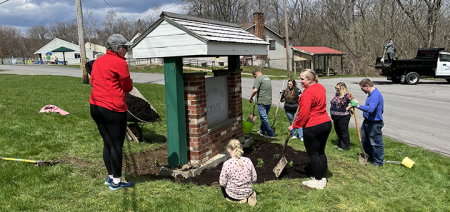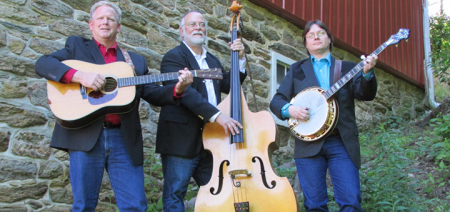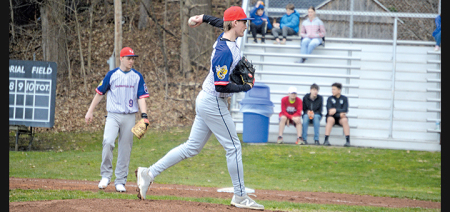All It Takes Is One
Published:
October 23rd, 2019
By:
Eric Davis
 Submitted Photo
Submitted Photo
As I noted in my column a few weeks ago, there is a push to increase hunter access on public lands. This is directly linked to the fact that hunters have less access to property to hunt than ever before. While there are many factors that contribute to this, including landowners leasing hunting rights on their property and large pieces of land being divided and developed, there is one factor that many people overlook. That is the impact of a disrespectful sportsman. This can be somebody who is hunting, fishing, trapping, hiking, or doing any other activity outdoors and they do something that negatively affects the property they are on or other people who also use the property.
When asking permission to hunt on a piece of property, I have had numerous landowners deny my request because of the actions of someone else to their property. Whether the person drove a vehicle across a field or harvested an animal that the landowner didn’t want harvested, that person put the idea in the landowner’s head that sportsmen shouldn’t be trusted to be on their property. The sad part is, I would bet 99 percent of these problems could have been avoided if the person took the time to talk to the landowner. It takes just a couple of seconds to ask where they prefer you park, if they mind if you harvest a doe if you have the proper tag, or if you can bring someone with you when you hunt there. Waiting until faced with a dilemma or trying to explain it to the landowner later can only set you up for failure.
The other way to be disrespectful is to treat other outdoor recreationalists poorly. This can be other people who are engaged in the same activity or people doing other activities. Waterfowl hunting can be one activity where hunters hurt each other’s’ chances of success by setting up too close together. What ends up happening is that one group starts to have birds circling their setup and the second group of hunters ends up shooting at them. One of my pet peeve scenarios comes from hunters who blame predators (mainly coyotes) for their impact on the game species yet get angry when they see a trapper checking their traps while the hunter is hunting. The hunter will almost always call the landowner and complain that the trapper is ruining all the hunting by checking their traps every day (as they are required to by law) and demand the landowner tell the trapper not to trap until after deer season. This hits home because I was asked by more than one landowner to do just that when I trapped a lot. The issue with this is that it puts the trapper at a disadvantage because the predators have more to eat as deer season ends as there are gut piles and unfound dead deer so bait at trap locations is less effective. Also, trying to dig a trap bed in frozen soil can take 5 minutes or longer, compared to 30 seconds in unfrozen ground. Trappers understand that it’s bow season and they try to get in and out as quickly as possible so they don’t interfere with hunters. Another group who can get hit hard by hunters are hikers and dog-walkers. These folks have every right to be there as hunters if they have been given permission by the landowner or if it is public land. If you encounter someone hiking or walking their dog, be polite and tell that that hunting season is open. Explain that you hunt in that area and that if they could find another location to go that you would appreciate it and that they may want to consider wearing blaze orange or other safety colored clothing if they are going to be around. Working things out like adults can keep you from getting kicked off the property by the owner for acting like a child and throwing a tantrum over seeing other people when you are hunting. If the person does their activity on a routine schedule, the deer will likely be used to it and it won’t bother them. If anything, the fact that the deer are used to human scent being around can help you.
If you do feel like there has been some sort of issue, talk to the landowner and explain what happened. Contact your local Environmental Conservation Officer if you think the Environmental Conservation Law has been broken. The key is to act like adults and use your brains to figure things out. Remember, it only takes the actions of one person to ruin it for everybody else.
Author: Eric Davis - More From This Author
Comments








